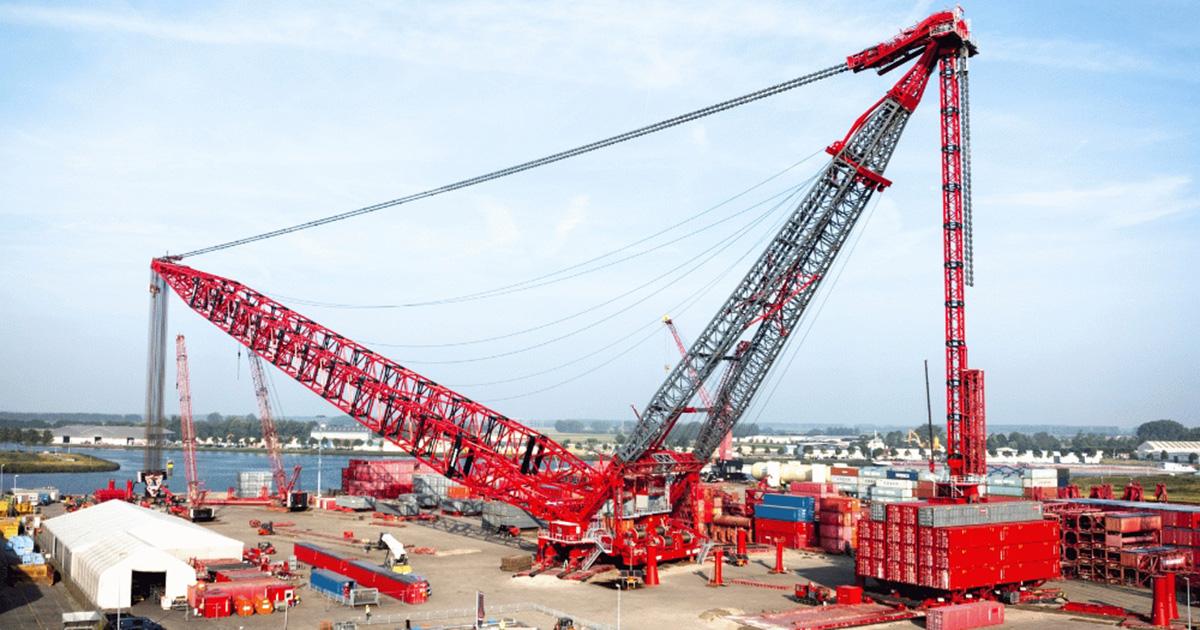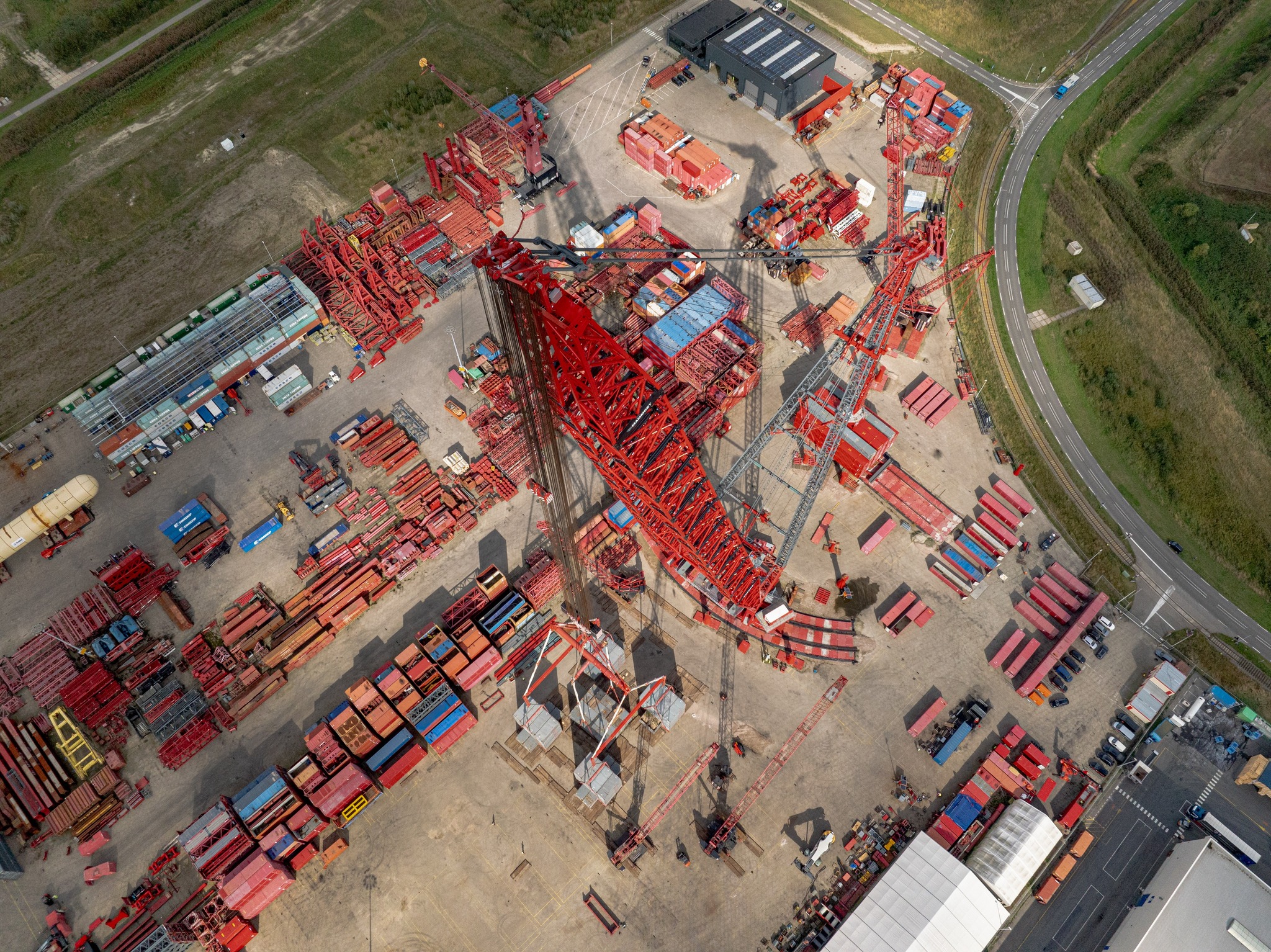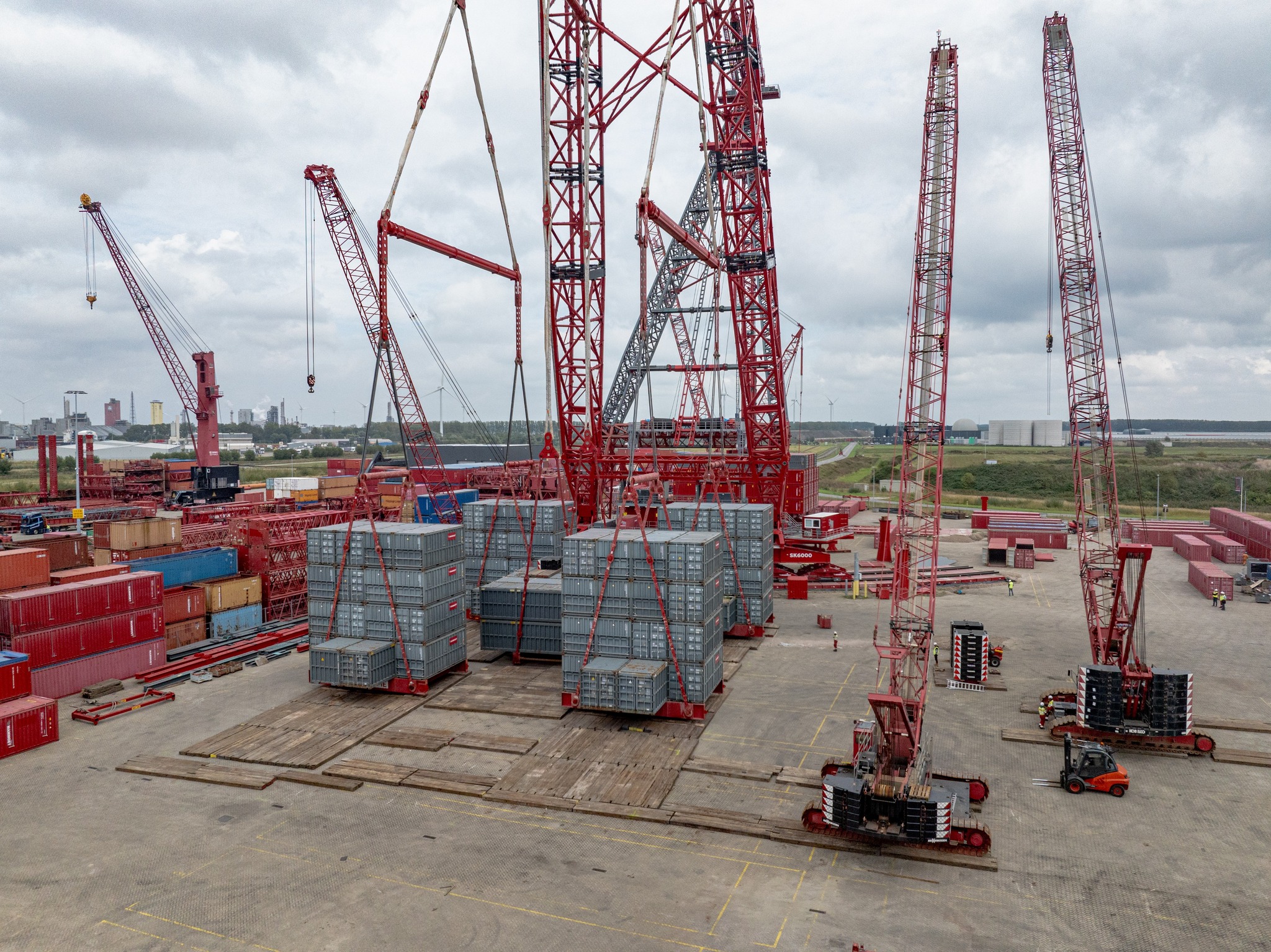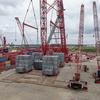Mammoet has successfully tested the world's most powerful ground crane, the SK6000, in the Netherlands

Netherlands-based Mammoet has completed the testing of the SK6000, the world's most powerful land-based crane. The process was monitored by the shipping classification organisation Lloyd's Register, which confirmed that the crane meets the stated specifications.
The tests lasted three months at the Mammoet site in Westdorp, the Netherlands. Firstly, functional tests were carried out to verify that the SK6000 fulfils its stated parameters. This was followed by structural and stability tests, during which the crane was operated with a load of 125% of the permissible load.
Here's What We Know
According to Mammoet, the SK6000 outperforms any other crane on the market in terms of hook height and lifting capacity. It has a maximum load capacity of 6,000 tonnes and uses 4,200 tonnes of ballast. The designers have designed the machine so that it can be disassembled for transport and packed into shipping containers.
Mammoet has previously shown how the SK6000 outperforms any other crane from the company:
The SK6000 runs on electricity - from its own batteries or plugged into the grid. As early as 2025, Mammoet plans to send the new product on its first major project. During the tests, the crane demonstrated its strength at the maximum capacity ranges for all mast configurations, which can vary from 127 to 171 metres.






Mammoet said that the SK6000 opens up new opportunities for large-scale projects in various sectors. In the energy sector, it enables wind farm projects with components lifting up to 220 metres, which is relevant for next-generation wind turbines. In the nuclear sector, the crane enables faster construction of facilities thanks to its modular design. In the oil and gas sector, it facilitates large-scale infrastructure modernisation with minimal disruption.